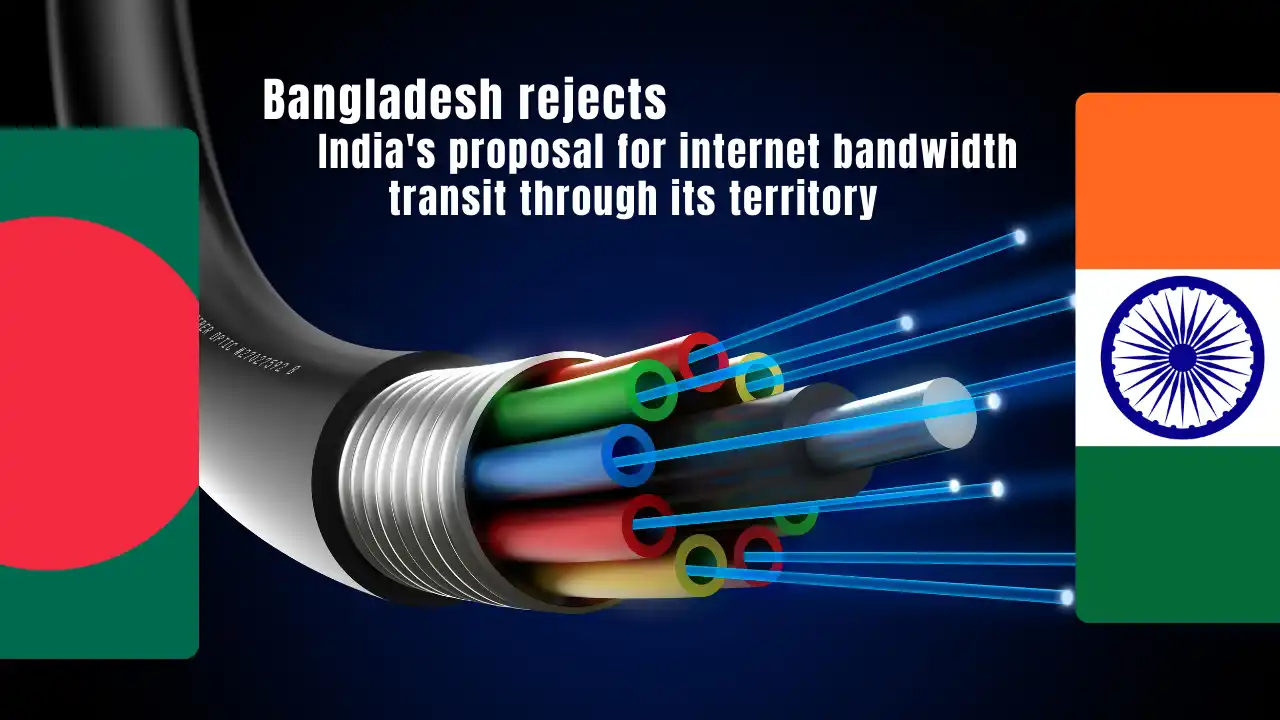Bangladesh has officially rejected India’s proposal for internet bandwidth transit through its territory. The Bangladesh Telecommunication Regulatory Commission (BTRC) announced this decision recently. The proposed plan aimed to allow Indian telecom companies to use Bangladesh as a transit point for bandwidth supply to northeastern states. This plan was initially supported by the previous government but has now been scrapped under the interim administration led by Muhammad Yunus. The BTRC expressed concerns that this arrangement could undermine Bangladesh’s potential as a regional internet hub.
The proposal involved routing bandwidth from Singapore to India’s northeastern states through the Akhaura border. This route was intended to improve internet connectivity in areas that currently suffer from slow speeds due to long-distance submarine cable connections. The plan was backed by Bangladeshi companies Summit Communications and Fiber@Home, in collaboration with Bharti Airtel, an Indian telecom giant. However, the BTRC has stated that the arrangement would primarily benefit India while offering little economic advantage to Bangladesh itself.
The rejection of this proposal reflects ongoing diplomatic tensions between India and Bangladesh. Recent months have seen a deterioration in relations, particularly following political unrest in Bangladesh. The Yunus government appears to be taking steps that prioritize national interests over regional cooperation with India. Analysts suggest that this move is part of a broader strategy to strengthen ties with other nations, potentially at India’s expense. Concerns about political influence within the telecom sector have also surfaced, raising questions about the motivations behind the initial proposal.
Furthermore, the BTRC’s decision could have significant implications for future cooperation between India and Bangladesh. The cancellation of the bandwidth transit agreement may hinder India’s efforts to enhance digital connectivity in its northeastern states. This region relies heavily on outdated infrastructure, which compromises internet speeds and reliability. The lack of a direct transit route could perpetuate these issues, affecting both economic development and access to information for residents.
As Bangladesh navigates its position in regional politics, this decision serves as a reminder of the complexities involved in international agreements. The rejection of India’s proposal for internet bandwidth transit through its territory highlights not only economic considerations but also geopolitical dynamics at play in South Asia. With high-level diplomatic discussions on the horizon, both countries will need to address these challenges to foster a more cooperative relationship moving forward.



